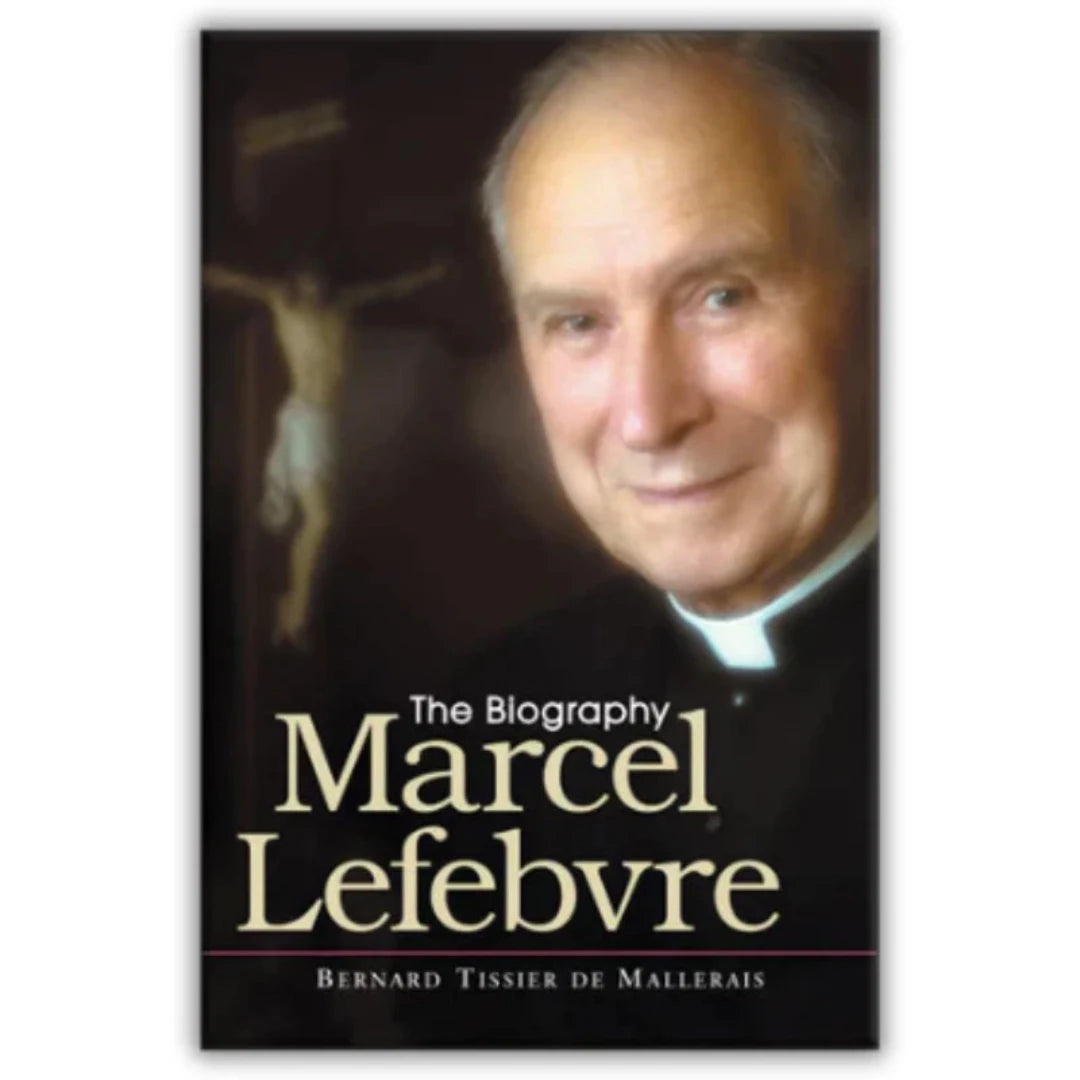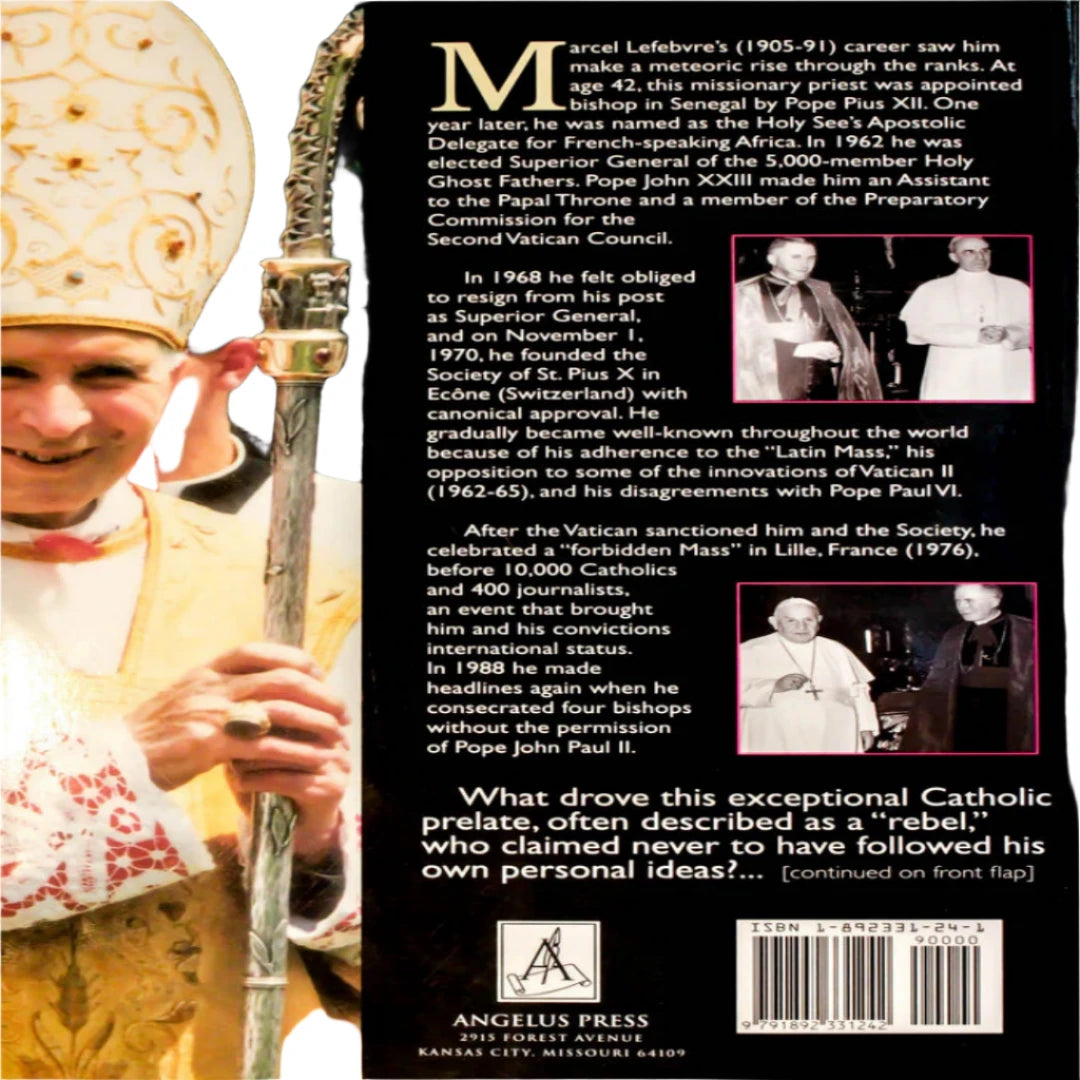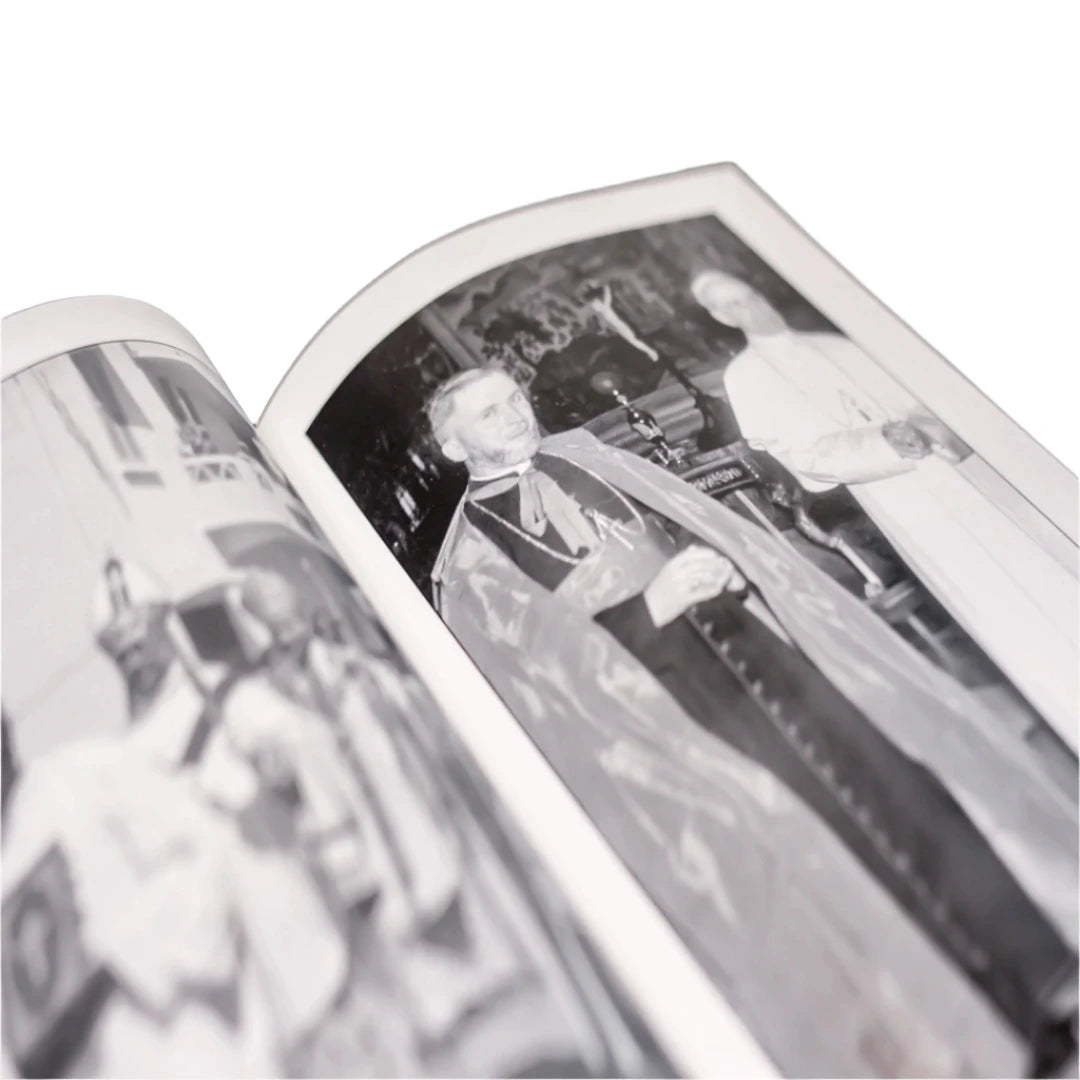OUR LADY OF GOOD SUCCESS CATHOLIC TRADER
MARCEL LEFEBVRE: THE BIOGRAPHY
MARCEL LEFEBVRE: THE BIOGRAPHY
Low stock: 2 left
Couldn't load pickup availability
This is the definitive biography of Archbishop Lefebvre, written by one of his closest associates, Bishop Bernard Tissier de Mallerais - a scholar in his own right.
Critics have said of the original French edition: "magisterial," "well-researched, serious, and honest," "reveals unsuspected facets. A very complete work," "a rich, important contribution to contemporary religious history," "a literary event," "a landmark." Influential French traditional Catholic publisher Jean Madiran said, "...the fruit of several years of considerable labor. The book is rich in documentation, often unpublished, and in many theological observations."
Marcel Lefebvre's (1905-91) career saw him make a meteoric rise through the Church ranks. At age 42. This missionary priest was appointed bishop in Senegal by Pope Pius XII. One year later, he was named as the Holy See's Apostolic Delegate for French-speaking Africa. In 1962 he was elected Superior General of the 5,000-member Holy Ghost Fathers. Pope John XXIII made him an Assistant to the Papal Throne and a member of the Preparatory Commission for the Second Vatican Council.
In 1968 he felt obliged to resign from his post as Superior General, and on November 1, 1970, he founded the Society of St. Pius X in Econe, Switzerland with canonical approval. He gradually became well-known throughout the world because of his adherence to the "Latin Mass," his opposition to some of the innovations of Vatican II (1962-65), and his disagreements with Pope Paul VI.
After the Vatican sanctioned him and the Society, he celebrated a "forbidden Mass" in Lille, France (1976), before 10,000 Catholics and 400 journalists, an event that brought him and his convictions international status. In 1988 he made headlines again when he consecrated four bishops without the permission of Pope John Paul II.
Share






